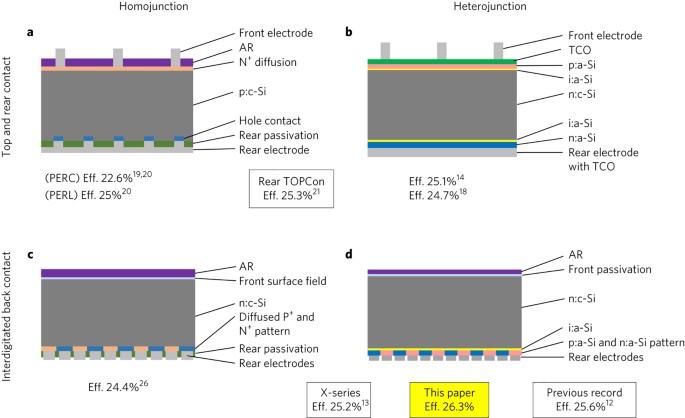Thin film solar cells are commercially used in several technologies including cadmium telluride copper indium gallium diselenide and amorphous thin film silicon.
Nature journal solar panel thin film.
Thin film solar panels are entering into the solar energy space as the newest type of solar panels.
Thin film solar cells tfscs such as hydrogenated amorphous silicon a si h cadmium telluride cdte and copper indium gallium selenide cigs are dominantly fabricated on si wafer or glass.
Thin films have the potential to revolutionise the present cost structure of photovoltaics by eliminating the use of the expensive silicon wafers that alone account for above 50 of total module manufacturing cost.
Film thickness varies from a few nanometers to tens of micrometers much thinner than thin film s rival technology the conventional first.
Cadmium telluride thin films have a peak recorded efficiency of more than 22 1 percent the percentage of photons hitting the surface of the cell that are transformed into an electric current.
Solar energy is the most prolific method of energy capture in nature.
These new energy producers are a versatile viable and cost effective form of solar panel.
Cadmium telluride thin film solar cells are the most common type available.
A very large amount of space is required in the form of.
A thin film solar cell is a second generation solar cell that is made by depositing one or more thin layers or thin film of photovoltaic material on a substrate such as glass plastic or metal.
Supporting a circular economy which appears in the journal nature.
Strategies for recycling of solar panels date.
They are less expensive than the more standard silicon thin film cells.
Thin film devices can be made flexible.
The economic drive to make solar cells more cost effective and efficient has driven developments in many different deposition technologies including dipping plating thick film deposition and thin film deposition.
Monocrystalline solar panels and polycrystalline are expensive too dainty and not relatively durable hence the thin film solar panels provides relevant responses to all the negative sides of both the monocrystalline and polycrystalline solar panels.
Thin film technologies can dramatically reduce the cost of next.










